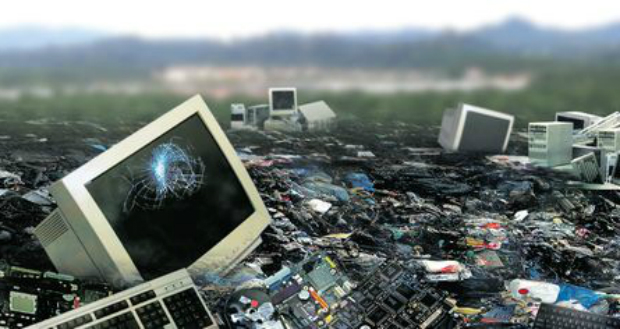
Environmentalists sending off emails railing against print risk charges of hypocrisy, with latest UN reports showing that dumped e-waste is a serious health hazard and environmental threat. Each year, the electronic industry – one of the world’s largest and fastest growing – generates up to 41 million tonnes of e-waste from goods such as computers and smart phones. Forecasts say that figure may reach 50 million tonnes already by 2017. And up to 90 per cent of the world’s electronic waste, worth nearly US$19b, is illegally traded or dumped each year, according to a report released by the United Nations Environment Programme (UNEP). A staggering 60-90 per cent of this waste is illegally traded or dumped, according to UNEP’s Waste Crimes, Waste Risks: Gaps and Challenges In the Waste Sector, launched in Geneva, at the Conference of Parties to the three major conventions addressing the global waste issue, the Basel, Rotterdam and Stockholm Conventions. Contrast this with print, where the big paper manufacturers are all operating environmentally sustainable businesses, and where the majority of product is continually recycled post-use. The International Criminal Police Organisation (Interpol) estimates the price of a tonne of e-waste at around US$500. Following this calculation, the value of unregistered and informally handled, including illegally traded and dumped e-waste ranges from US$12.5bn to US$18.8bn annually.
UN Under-Secretary-General and Executive Director of UNEP, Achim Steiner said: “We are witnessing an unprecedented amount of electronic waste rolling out over the world. Not only does it account for a large portion of the world’s non-recycled waste mountain, but it also poses a growing threat to human health and the environment, due to the hazardous elements it contains. “Through enhanced international cooperation and legislative coherence, stronger national regulations and enforcement, as well as greater awareness and robust prevention measures we can ensure that the illegal trade and dumping of e-waste is brought to an end. This will create a win-win situation, whereby rare and expensive elements are safely recycled and reused, boosting the formal economy, depriving criminals of income and reducing health risks to the public,” he added.
Comment below to have your say on this story.
If you have a news story or tip-off, get in touch at editorial@sprinter.com.au.
Sign up to the Sprinter newsletter

